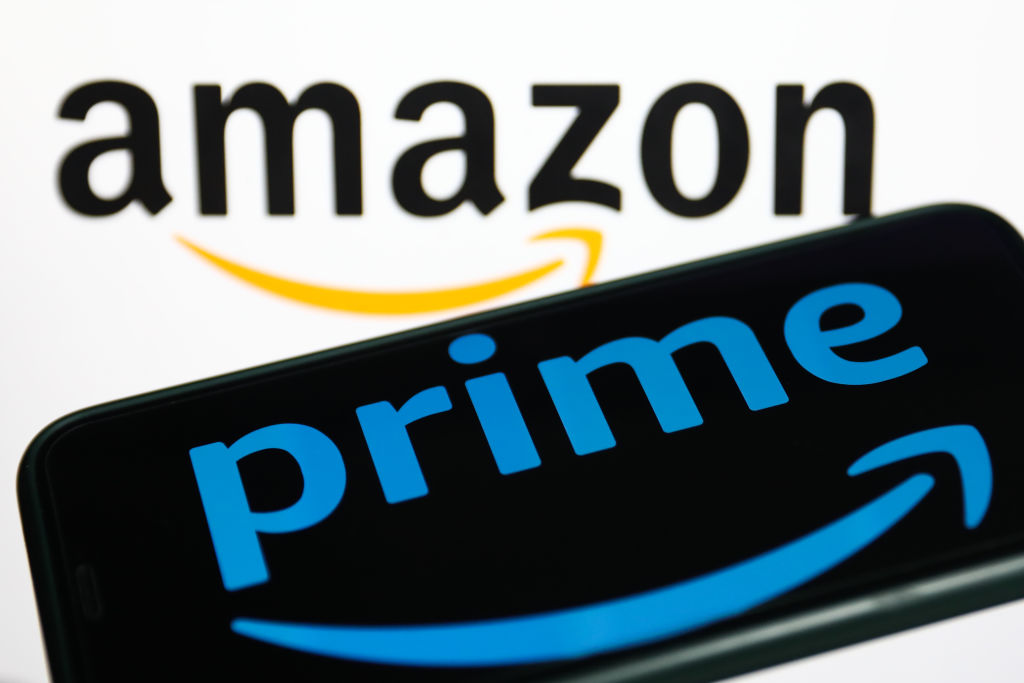Amazon Sued for Allegedly Deceptive Practices Across Prime, Audible
As Prime Day arrives, Amazon is under a variety of legal threats to its subscription policies.


Profit and prosper with the best of Kiplinger's advice on investing, taxes, retirement, personal finance and much more. Delivered daily. Enter your email in the box and click Sign Me Up.
You are now subscribed
Your newsletter sign-up was successful
Want to add more newsletters?

Delivered daily
Kiplinger Today
Profit and prosper with the best of Kiplinger's advice on investing, taxes, retirement, personal finance and much more delivered daily. Smart money moves start here.

Sent five days a week
Kiplinger A Step Ahead
Get practical help to make better financial decisions in your everyday life, from spending to savings on top deals.

Delivered daily
Kiplinger Closing Bell
Get today's biggest financial and investing headlines delivered to your inbox every day the U.S. stock market is open.

Sent twice a week
Kiplinger Adviser Intel
Financial pros across the country share best practices and fresh tactics to preserve and grow your wealth.

Delivered weekly
Kiplinger Tax Tips
Trim your federal and state tax bills with practical tax-planning and tax-cutting strategies.

Sent twice a week
Kiplinger Retirement Tips
Your twice-a-week guide to planning and enjoying a financially secure and richly rewarding retirement

Sent bimonthly.
Kiplinger Adviser Angle
Insights for advisers, wealth managers and other financial professionals.

Sent twice a week
Kiplinger Investing Weekly
Your twice-a-week roundup of promising stocks, funds, companies and industries you should consider, ones you should avoid, and why.

Sent weekly for six weeks
Kiplinger Invest for Retirement
Your step-by-step six-part series on how to invest for retirement, from devising a successful strategy to exactly which investments to choose.
It's Prime Day, and millions of Amazon Prime members are eagerly checking out product deals. Beneath that picture of satisfied online shoppers, there may lie an unfortunate truth. Amazon is facing a variety of lawsuits from government and private plaintiffs alleging that the e-commerce behemoth tricked consumers into signing up for Prime and related services, and then made it nearly impossible to cancel.
FTC lawsuit against Amazon over Prime subscriptions
The Federal Trade Commission (FTC) sued Amazon in the US District Court for the Western District of Washington on Thursday, June 21. The FTC claims that the tech giant has duped millions of consumers into signing up for Prime subscriptions service using an intentionally-confusing user interface and attempted to keep users subscribed who wished to cancel their memberships.
The FTC alleges that "Amazon used manipulative, coercive, or deceptive user-interface designs known as ‘dark patterns’ to trick consumers into enrolling in automatically-renewing Prime subscriptions.” It also claims Amazon complicated customer efforts to cancel subscriptions, labyrinthine cancellation process internally referred to as "Iliad", according to The Guardian.
From just $107.88 $24.99 for Kiplinger Personal Finance
Become a smarter, better informed investor. Subscribe from just $107.88 $24.99, plus get up to 4 Special Issues

Sign up for Kiplinger’s Free Newsletters
Profit and prosper with the best of expert advice on investing, taxes, retirement, personal finance and more - straight to your e-mail.
Profit and prosper with the best of expert advice - straight to your e-mail.
The FTC concedes that Amazon simplified users ability to cancel Prime in April 2023, but the agency alleges that the company had deprived customers of full agency for years before FTC action forced Amazon's hand.
Amazon called the FTC’s claims “false on the facts and the law” and stated it did not receive advance notice of the complaint before it was filed, according to CNN Business,
The lawsuit marks the FTC’s heaviest action to date against the business tactic of using psychological gimmicks to trap customers into subscriptions, CNN Business noted.
Amazon exceeded 200 million paid Prime subscribers as of 2021, collecting billions for the company's bottom line from customers who have allegedly been tricked into spending far more time and money on the service than they intended, per the CNN story.
This is the third case the FTC has brought against Amazon since May. In late May, Amazon agreed to pay the agency $30 million to settle two cases alleging privacy violations involving the company's Alexa and Ring units. In a statement, Amazon said that it disagreed with the FTC's claims but wanted to move forward.
CA class action over Audible subscription scheme
According to Law360, two California-based Audible customers sued the audiobook subsidiary of Amazon in Washington state court on June 1.
Plaintiffs Renee Viveros and Christine Bias claim that Audible uses e-commerce tricks called "dark patterns" to cheat California consumers by automatically charging monthly or yearly subscription charges without properly disclosing the auto-renewal. They further claim that Audible does not clearly make the Audible subscription terms available and then automatically charges consumers anywhere from $7.95 to $229.50 for monthly or yearly charges on their credit or debit cards.
The plaintiffs state that the renewal scheme goes against California’s Automatic Renewal Law, which requires clear disclosure of terms and affirmative consent, according to TopClassActions.
The class action suit requests damages, restitution, declaratory relief, private and public injunctive relief and reasonable attorneys’ fees.
Law.com reported that the case was moved from Washington state court to the Federal Court for the Western District of Washington on June 20.
NY class action over Prime, Audible marketing
On April 26, Amazon Prime member Tracy McCarthy and her attorneys filed an 11-page case in New York alleging deceptive Amazon Prime and Audible marketing practices. According to ClassAction.org, the complaint alleges that Amazon falsely promises Amazon Prime members a free subscription to Audible. The plaintiff claims that Amazon secretly enrolls Prime members into paid Audible subscriptions and then charges them monthly fees they never approved.
The case says that “Audible membership is not adequately disclosed to the Prime members.”
Echoing the FTC's recent complaint, the New York class action claims that Amazon makes it extremely difficult for Prime members to discontinue their Audible subscriptions once they discover improper charges. The complaint alleges that even if subscribers discover the deceptive billing, Amazon will only refund fees dating back a few months.
The lawsuit intends to represent New York consumers charged for Audible subscriptions between April 26, 2019 and the date of final judgment in the litigation.
On July 10, Law360 reported that the class action was moved from the United States District Court for the Eastern District of New York to the District Court for the Western District of Washington, where Amazon is headquartered.
Related Content
Profit and prosper with the best of Kiplinger's advice on investing, taxes, retirement, personal finance and much more. Delivered daily. Enter your email in the box and click Sign Me Up.

Ben Demers manages digital content and engagement at Kiplinger, informing readers through a range of personal finance articles, e-newsletters, social media, syndicated content, and videos. He is passionate about helping people lead their best lives through sound financial behavior, particularly saving money at home and avoiding scams and identity theft. Ben graduated with an M.P.S. from Georgetown University and a B.A. from Vassar College. He joined Kiplinger in May 2017.
-
 Dow Adds 1,206 Points to Top 50,000: Stock Market Today
Dow Adds 1,206 Points to Top 50,000: Stock Market TodayThe S&P 500 and Nasdaq also had strong finishes to a volatile week, with beaten-down tech stocks outperforming.
-
 Ask the Tax Editor: Federal Income Tax Deductions
Ask the Tax Editor: Federal Income Tax DeductionsAsk the Editor In this week's Ask the Editor Q&A, Joy Taylor answers questions on federal income tax deductions
-
 States With No-Fault Car Insurance Laws (and How No-Fault Car Insurance Works)
States With No-Fault Car Insurance Laws (and How No-Fault Car Insurance Works)A breakdown of the confusing rules around no-fault car insurance in every state where it exists.